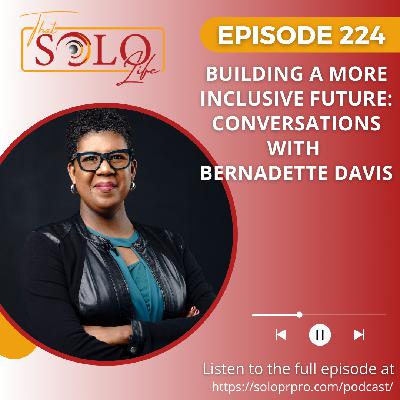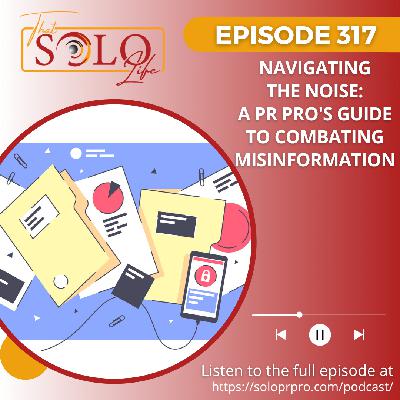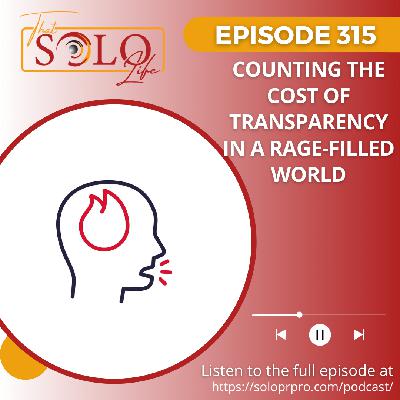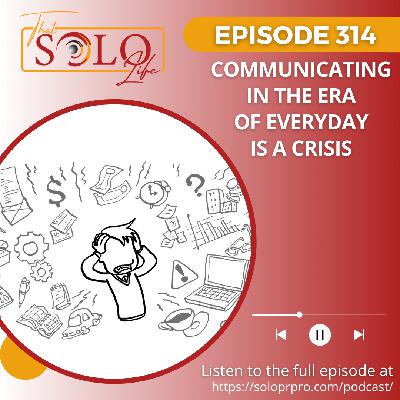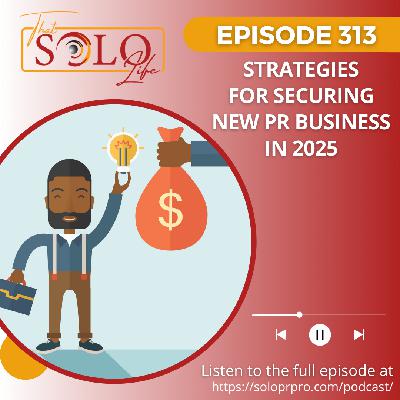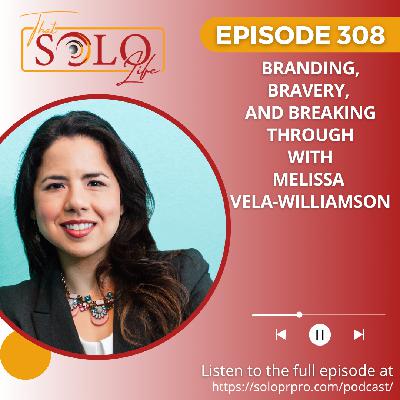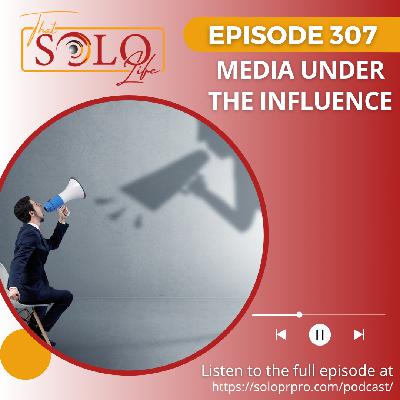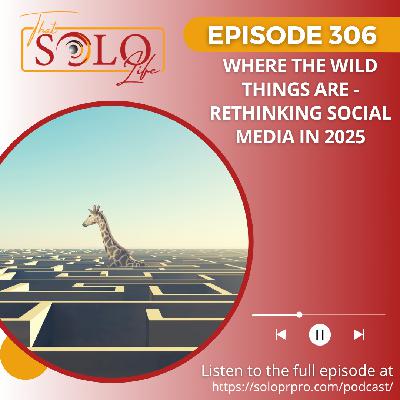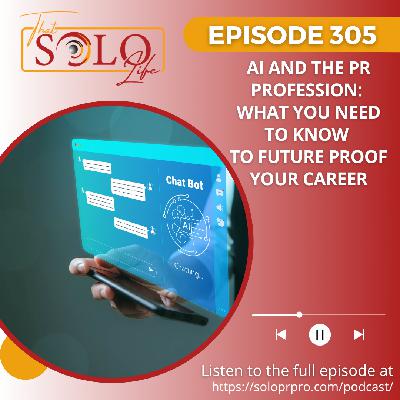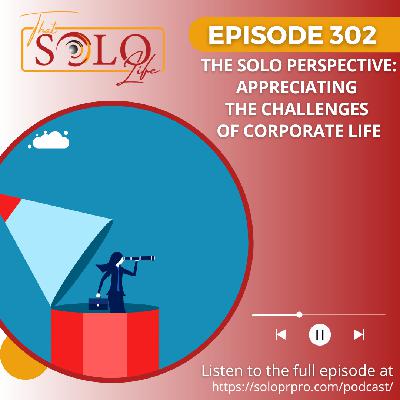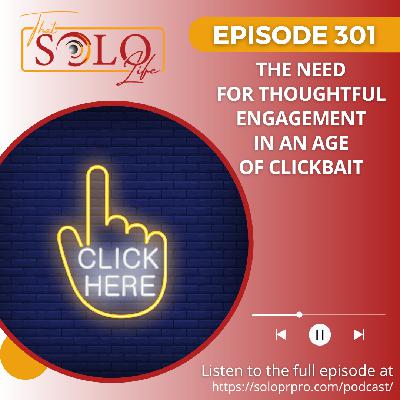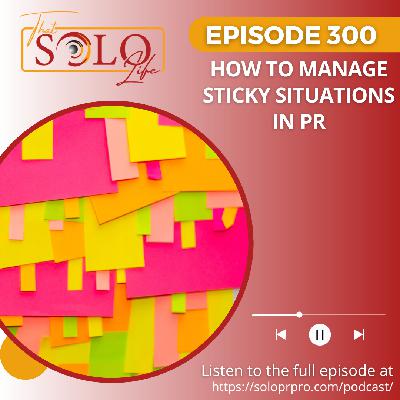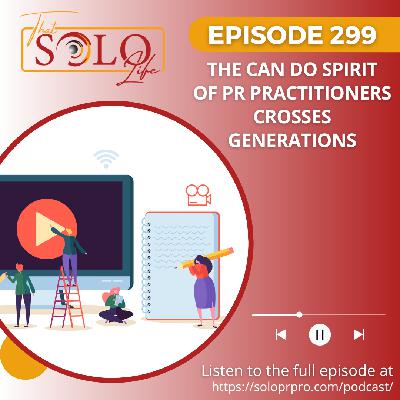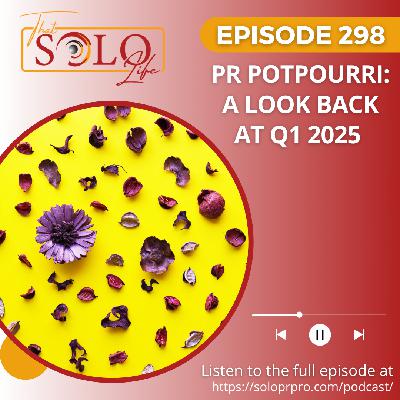Building a More Inclusive Future: Conversations with Bernadette Davis
Description
There are many challenges faced by DE&I practitioners in today's landscape, including the backlash against DE&I efforts. In this episode, we are joined by an expert in the field of DE&I communications, Bernadette Davis of Bernadette Davis Communications. Listen to hear her valuable insights on how communicators can navigate these challenges, emphasizing the need for inclusivity to be woven into the company's culture.
Stay in touch with Bernadette on LinkedIn and at her website, bdaviscomm.com.
Transcript
Michelle Kane (00:02 ):
Thank you for joining us for this episode of That Solo Life, the podcast for PR pros and marketers who work for themselves, people like me, Michelle Kane with VoiceMatters and of course Karen Swim of Solo PR Pro. But we are most excited - we love when we have guests – today we have a guest!You're in for a treat today. We welcome Bernadette Davis. Bernadette is an accredited public relations professional and founder of Bernadette Davis Communications. She and her team use their depth of expertise in media relations, executive communications, internal employee communications, diversity, equity and inclusion, and corporate editorial to support clients. So that sounds marvelous and we are so happy, Bernadette, that you're with us today. We're lucky.
Bernadette Davis, APR (00:52 ):
Thank you for having me.
Michelle Kane (00:55 ):
No, this is phenomenal. So tell us about your work in DEI communications because it's very important work.
Bernadette Davis, APR (01:01 ):
Okay, so again, thank you both for having me on. Today I lead a small but mighty team. I started the company though as a solo in 2014 and have transitioned into a boutique agency. And one of our areas of expertise is in DE&I communications. So before I started this agency, the last job that I had, traditional role was at Walt Disney World Resort, which I loved. And I worked on a team, the public affairs team, and we had internal clients. Two of my internal clients at that time were the DE&I team and the supplier diversity team. And while I worked with a lot of clients while I was there, I did learn a lot from those two teams. Little did I realize when I was doing that work as an employee there that 2, 3, 4 years later, I would end up starting an agency and using that expertise to then serve clients.
So that's how that journey started with me, specifically with DE&I communications, bringing that knowledge together with my communications experience. And so my team operates very well as an extension of corporate comms teams because we do have design capabilities, communication strategy, content development. So we can really be almost like their in-house agency as an external partner. And we apply that to DE&I work as well. So for example, when we work with a chief diversity officer or with a communications team that wants some more DE&I experience, we might write for senior level executives who are giving speeches and presentations where they have an inclusive component. We would do design work for them DE&I reports, and even internal and external communication strategy. So how are you talking to your employees about the inclusive work that the company does? And we help to amplify those stories, figure out what are the right stories to, to reach their audiences and even developing that messaging.
Karen Swim, APR (03:11 ):
Thank you so much for that rich explanation because I think for people that may not be involved in DEI and B work that you may underestimate the amount of activities that get poured into helping companies to really have an inclusive culture because that is, that's a full breadth of public relations services dedicated to a very specific part of the company and then weaving that into the overall messaging as well. So that was really helpful. I'm really interested, some of the things that I'm seeing beyond, not with my own clients, but just when talking with people that do this work is that we've seen this year be a little bit tumultuous, a little bit economically challenged, and we're used to seeing things like marketing and PR being cut back. But it seems like some DEI programs are also being cut back or departments are being merged into other pieces of the company, which is disturbing because there's so much work to do. What trends are you seeing in your work with your clients or just in talking with other colleagues that are also in this space?
Bernadette Davis, APR (04:35 ):
So Karen, I think first of all, it's interesting, A little bit tumultuous. Yes, more than a little bit and more than a year. The trends that I see, and this is coming from other communicators as well as DE&I, practitioners that I know and some that we've worked with. The landscape around DE&I is very challenging right now. And some people really position it as DE&I work, diversity, equity and inclusion work is under attack. And anytime you have a team or content that's under attack in that way, there can be a concern around that. How do we continue to do this work? So you see things like repositioning the work, naming it differently, for instance, adding the concept of belonging or referring to it as belonging work that's been going on for a couple of years, that transition. So you'll see some teams that are DEI and belonging, bringing it back into HR teams if it was ever pulled out of HR, bringing it back into HR, talking about company culture, which I think is really positive because inclusion should be a part of your company culture.
So I think some of these transitions are helpful because inclusion should not sit off to the side of your business. Your people, leaders, financial leaders, your operations leaders, employees at every part of the company should be thinking about their work and how it can be more inclusive. We also see some companies and organizations that are truly becoming concerned enough that they're likely stopping the work or they want to stop talking about the work that they're doing because they don't want to draw fire over that work. So that's concerning. And I think our role as communicators is to work through that with them and to bring to bear what's messaging that does work, what are the questions we can ask that help us find the right story to tell and to explore what the work really is that we're not making assumptions based on external factors and that we are disusing people of those assumptions. So I think as communicators we do have a more integrated role to play rather than just being task takers to help the organization and help leaders think through the work that they're doing, are you really going to stop doing inclusive work? Because to me, I'm always challenged by that idea because companies don't want to include fewer employees. That's not a smart thing to do.
So those are the things that we're seeing,
Michelle Kane (07:23 ):
Right, and it just doesn't make sense because it should be at the forefront of how companies cast their vision and develop their values and their culture.
Bernadette Davis, APR (07:36 ):
Exactly. It's about taking care of the people in your company, taking care of the people you do business with and your customers. And it's also about reputation, risk and opportunity. So when you think about how people perceive DE&I and DE&I work, there was a PEW research study shared earlier this year that said most workers around 56% say focusing on increasing DE&I at work is mainly a good thing. That's more than half of your audience. So you have to be very cautious about not doing the work, not talking about the work. No one wants to lose half their audience.
Michelle Kane (08:21 ):
No, no, they do not.
Karen Swim, APR (08:24 ):
I believe it also, let's just call it out. It is good for your bottom line profitability. Often leaders, the language that they speak are dollars and there are so many

